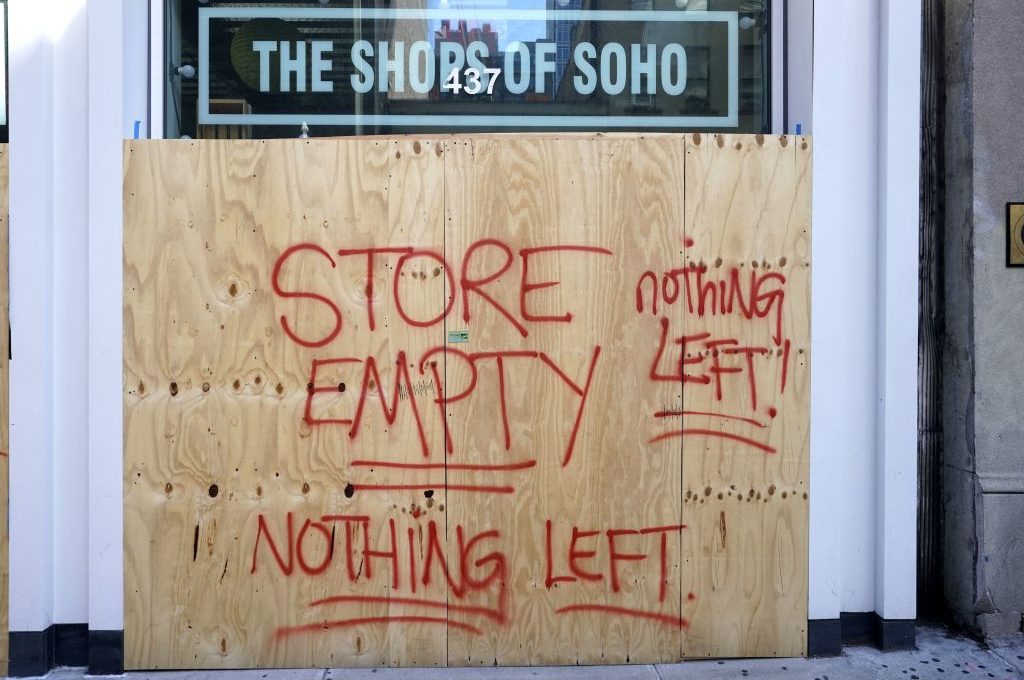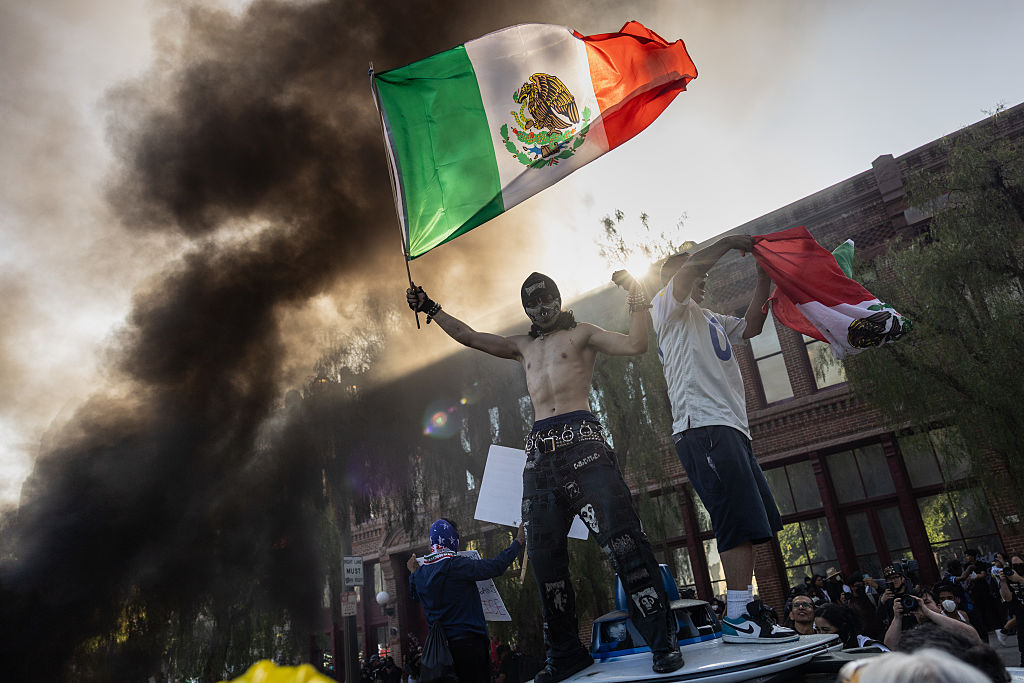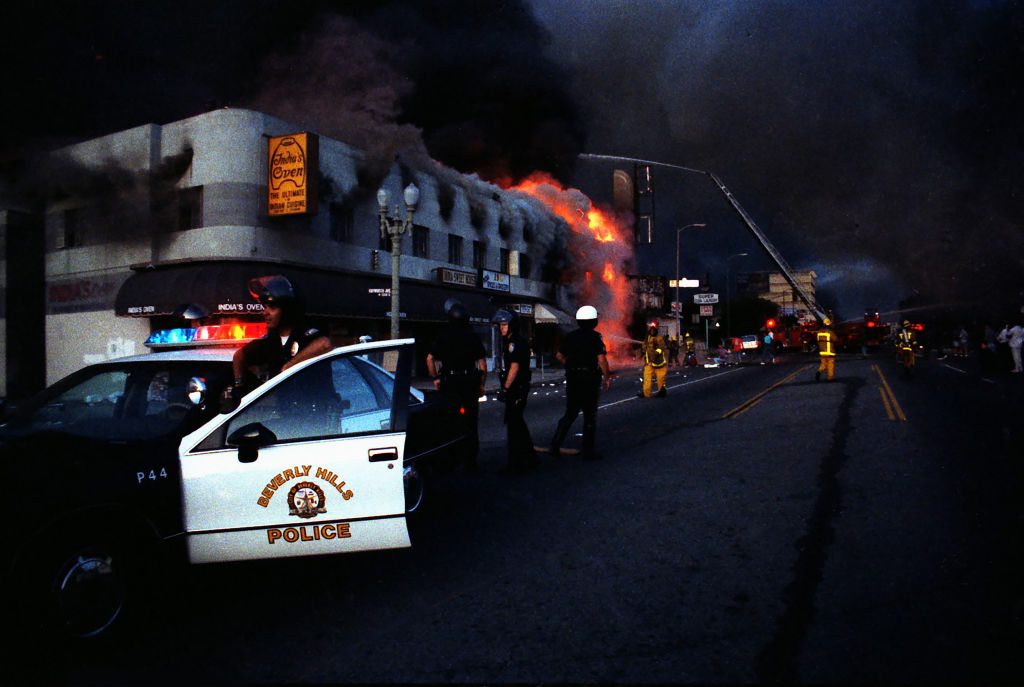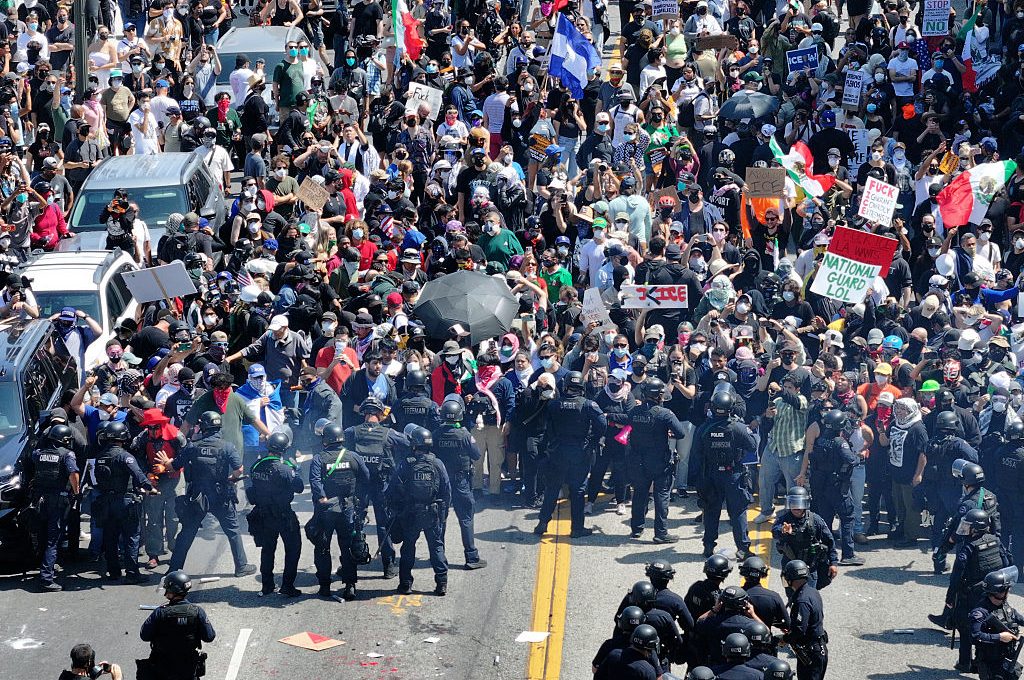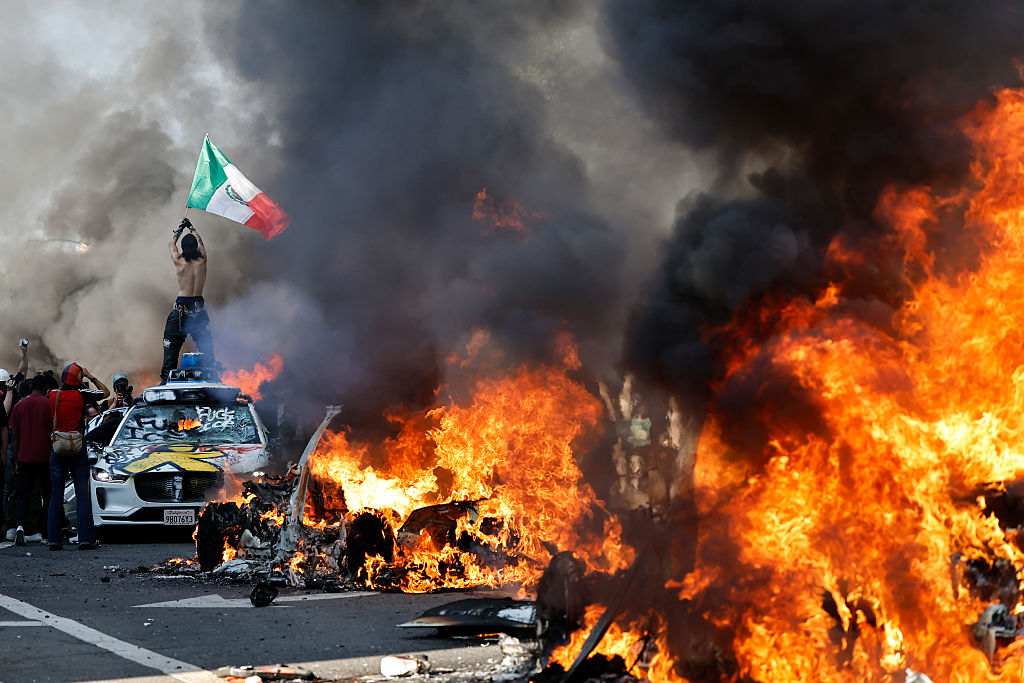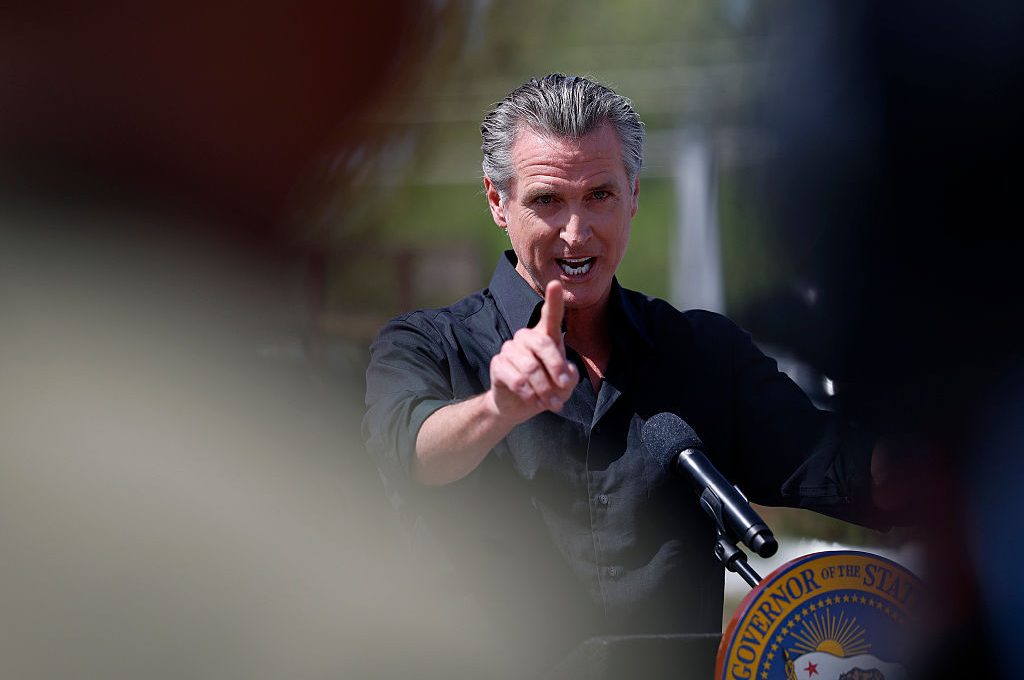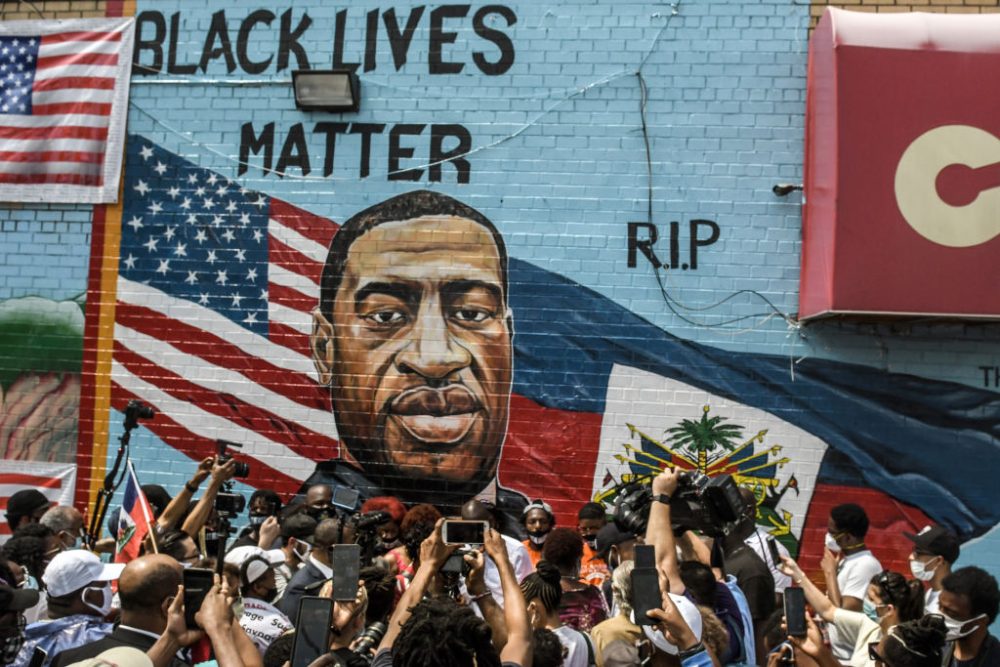Vicky Osterweil, a trans woman who describes herself as a ‘writer, editor, and agitator’ and whose Twitter handle is ‘Vicky_ACAB’ (all cops are bastards), must have been overcome with joy when rioting and looting broke out in the wake of George Floyd’s death. This is partly because she is a radical leftist and partly because she had just finished writing a book called In Defense of Looting. What a stroke of luck! It’s as if I had written a book called Beware of Pandemics in late 2019. I have to salute her timing.Osterweil is the classic sort of leftist who attempts to wrap enough pretty language around violence and destruction as to ennoble it. The riots, arsons and looting of 2020 needed such a character. It is sort of bracing to have a full-throated endorsement of such activities after grappling with slipperiness of the softer-left.Compared to legends of the field, like Jean-Paul Sartre, she comes up short. Indeed, her writing often verges on self-parody. ‘Riots are violent, extreme, and femme as fuck,’ she informs us. Femme? (As fuck?)‘As a mode of struggle, riots are marked by many characteristics traditionally defined as feminine: not driven by rational argumentation or “proper” political dialogue, they are instead driven by desire, affect, rage, and pain.’I don’t know what kind of stone-cold misogynist thinks the irrational is necessarily feminine. That’s a level of sexism that even the outer reaches of the ‘red-pilled’ internet only aspire to achieve. You get the sense that Osterweil was just desperate to squeeze modish gender politics in somewhere.There are two ways of approaching Osterweil’s argument, one of which focuses on her tactics and one of which focuses on the values that underpin them. Focusing on the former concedes too much. Osterweil’s problem is not that she has good intentions and unsound strategies. It is that her entire worldview is unhinged. According to Osterweil, ‘In the four hundred years of barbaric, white supremacist, colonial, and genocidal history known as the United States, the civil rights movement stands out as a bright, beautiful, all-too-brief moment of hope and struggle.’ This is typically hysterical oikophobia. God knows, I will not say a kind word for slavery, Operation PBSuccess and the Iraq War. But I will also not say a kind word for Mao and the oppression of the Uighurs — yet I still appreciate the riches of Chinese culture and history.Osterweil is flagrantly dishonest, or fantastically ignorant, in her attempts to portray the US as such a quasi-fascistic oppressor of African Americans that violent disorder is justifiable. Darren Wilson, she writes, ‘gunned down Mike Brown for the crime of being black’. Multiple investigations have concluded that Brown attempted to seize Wilson’s gun, and if Osterweil has reason to think that this is false she should have argued as much. (It was also discovered that Brown robbed a convenience store immediately prior to this altercation. Osterweil says he was ‘slandered’ as a thief but offers no evidence to support this characterization.)Such hot bias pervades Osterweil’s treatment of history as well. On page 3, as Pranesh Prakash pointed out, a quote that the word ‘loot’ was used as a ‘bond of union’ in India is attributed to an English colonial officer but actually comes from Amir Khan, Nawab of Potok. Another small example — but a telling one in how it illustrates the firmness and narrowness of Osterweil’s blinkers — comes when she bangs on about McCarthyism for pages but does not spend as much as a sentence admitting that there was extensive Soviet infiltration of the US. If you are going to reference the execution of Julius Rosenberg in the context of a long rant about ‘paranoid fear-mongering’ I think you are obliged to admit that he was guilty. Osterweil spends a lot of time arguing that violence and destruction are not bad per se. I agree! Armed self-defense? Good! Resisting illegitimate authority? Often good! But when it comes to arguing that violence and destruction in modern-day America is justifiable, Osterweil is not merely unpersuasive but actually makes me think she might be an undercover conservative trying to make the left look bad. Consider this emoting:‘We can no longer let the police, that despicable occupying army, seem “natural,” nor let anyone paint resistance to the settler state as an enemy of peace. Their peace is the peace of the grave.’Eh? I’m not sure if that pseudo-poetic flourish merits a response but it might be worth pointing out that less than one-fifth of the black Americans that Osterweil does a lot of speaking for in In Defence of Lootingwant fewer police on their streets. In the book, Osterweil condemns people who think ‘poor Black or working-class folks don’t know what they’re doing’. I guess in this instance she doesn’t think black people know what they’re doing. And what is it with this kind of writer and the word ‘folks’?
[special_offer]
‘We need to stand fast beside looters, rioters, and street fighters,’ Osterweil insists. Well, let us look at what looters and rioters have been getting up to. Destroying and damaging small restaurants, bars, churches, car dealerships, grocery stores, pharmacies — many of them owned by African Americans (which I don’t think makes it more condemnable than when they are owned by anybody else, but which makes Osterweil’s arguments even more preposterous). In an interview with NPR, Osterweil actually justified this violence in these terms:‘When it comes to small business, family owned business or locally owned business, they are no more likely to provide worker protections. They are no more likely to have to provide good stuff for the community than big businesses.’Well, I don’t see what gives to Osterweil the darn right to determine whose businesses deserve to survive but perhaps they provide good products, friendly service and a local alternative to the mega-corps which are swallowing up Western economies in the aftermath of a vicious COVID-19-lockdown combo.As for the ‘street fighters’ she endorses, it’s worth asking how she distinguishes then from the man who killed David Dorn as he protected his friend’s pawn shop, or the men who beat a woman protecting a jewelry store, or the people who hurled rocks and bottles at firefighters.Ultimately, when an ideology is premised on misplaced hostility and paranoia, and when violent tactics are so broadly and hysterically justified, this kind of pointless, pathetic destruction is inevitable. Osterweil only provides encouragement. This book proves, if nothing else, that you can get anything published if you wrap it in a veneer of progressive idealism.



